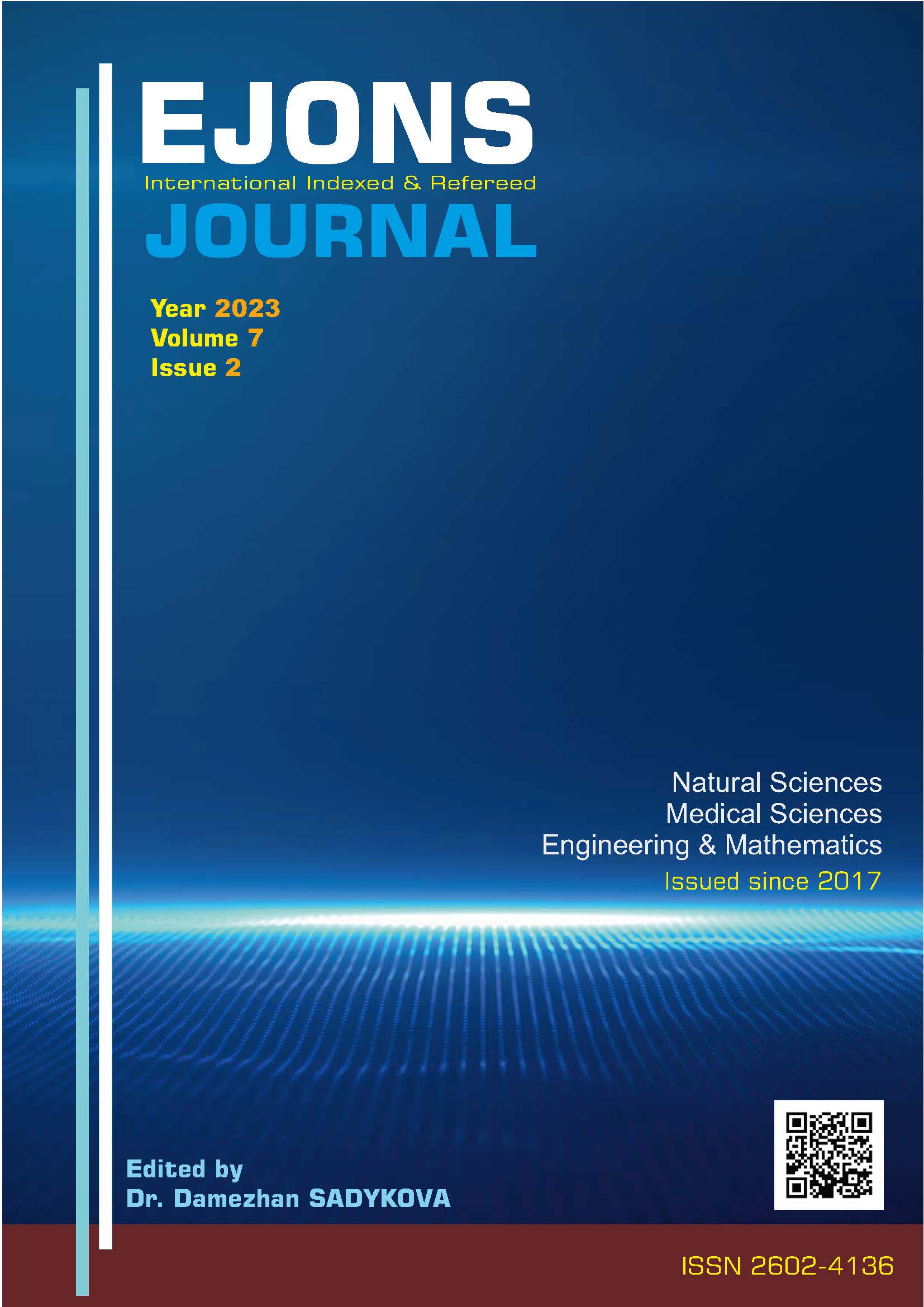BİTKİ BAZLI GIDALAR
BİTKİ BAZLI GIDALAR
DOI:
https://doi.org/10.5281/zenodo.8265817Keywords:
Bitki bazlı gıda, hayvansal gıda, sera gazı, çevreAbstract
In recent years, concerns have arisen regarding the environmental, ethical and health effects of animal foods. For this reason, people often turn to plant-based foods. These concerns stem from greenhouse gas emissions, massive land use, depletion and pollution of water resources. In addition, there are studies showing that plant nutrition is healthier than the inclusion of animal foods in human nutrition. Eating more fresh fruits, vegetables, nuts and whole grain cereals has been associated with better health outcomes, but it is unclear whether the next generation of plant-based foods such as meat, seafood, eggs and dairy analogues are healthier than the natural products. Many of these new products are highly processed foods that contain high levels of saturated fat, sugar, starch and salt and low levels of micronutrients, nutraceuticals and dietary fiber. They are also generally digested quickly in the gastrointestinal tract, as their processing degrades plant tissues and releases macronutrients. Consequently, it is important to formulate plant-based foods to reduce the levels of nutrients associated with adverse health effects and increase levels associated with beneficial health effects. It is also important to design the food matrix so that macronutrients are not digested and absorbed too quickly, but micronutrients are highly bioavailable. In this article, properties of new generation plant-based foods is discussed.
References
Appenroth, K. J., Sree, K. S., Böhm, V., Hammann, S., Vetter, W., Leiterer, M., & Jahreis, G. (2017). Nutritional value of duckweeds (Lemnaceae) as human food. Food chemistry, 217, 266-273.
Aschemann-Witzel, J., Gantriis, R. F., Fraga, P., & Perez-Cueto, F. J. (2021). Plant-based food and protein trend from a business perspective: Markets, consumers, and the challenges and opportunities in the future. Critical Reviews in Food Science and Nutrition, 61(18), 3119-3128.
Bryant, C., & Barnett, J. (2020). Consumer acceptance of cultured meat: An updated review (2018–2020). Applied Sciences, 10(15), 5201.
Davoodi, S. H., Shahbazi, R., Esmaeili, S., Sohrabvandi, S., Mortazavian, A., Jazayeri, S., & Taslimi, A. (2016). Health-related aspects of milk proteins. Iranian journal of pharmaceutical research: IJPR, 15(3), 573.
Day, L., Cakebread, J. A., & Loveday, S. M. (2022). Food proteins from animals and plants: Differences in the nutritional and functional properties. Trends in Food Science & Technology, 119, 428-442.
Donat, İ. (2021). Bitki bazlı gıda sektörü çığ gibi büyüyor, https://gazeteoksijen.com/yazarlar/irfan-donat/bitki-bazli-gida-sektoru-cig-gibi-buyuyor-53270, Erişim Tarihi: 29.05.2023
Drigon, V., Nicolle, L., Fanny, G. H., Gagnaire, V., & Arvisenet, G. (2023). Attitudes and beliefs of French consumers towards innovative food products that mix dairy and plant-based components. International Journal of Gastronomy and Food Science, 32, 100725.
Fardet, A., Méjean, C., Labouré, H., Andreeva, V. A., & Feron, G. (2017). The degree of processing of foods which are most widely consumed by the French elderly population is associated with satiety and glycemic potentials and nutrient profiles. Food & function, 8(2), 651-658.
Hadidi, M., Palacios, J. C. O., McClements, D. J., Mahfouzi, M., & Moreno, A. (2023). Alfalfa as a sustainable source of plant-based food proteins. Trends in Food Science & Technology.
Konefal, J., Hatanaka, M., & Constance, D. H. (2019). Multi-stakeholder initiatives and the divergent construction and implementation of sustainable agriculture in the USA. Renewable Agriculture and Food Systems, 34(4), 293-303.
Kraak, V. I. (2022). Perspective: Unpacking the wicked challenges for alternative proteins in the United States: can highly processed plant-based and cell-cultured food and beverage products support healthy and sustainable diets and food systems?. Advances in Nutrition, 13(1), 38-47.
Loveday, S. M. (2020). Plant protein ingredients with food functionality potential. Nutrition Bulletin, 45(3), 321-327.
Lynch, H., Johnston, C., & Wharton, C. (2018). Plant-based diets: Considerations for environmental impact, protein quality, and exercise performance. Nutrients, 10(12), 1841.
Markwell, (2023). https://www.markwellfoods.com.au/new-introducing-the-green-butcher/ Erişim Tarihi: 29.05.2023
Martínez-Villaluenga, C., Peñas, E., & Hernández-Ledesma, B. (2020). Pseudocereal grains: Nutritional value, health benefits and current applications for the development of gluten-free foods. Food and Chemical Toxicology, 137, 111178.
McClements, D. J., & Grossmann, L. (2021). The science of plant‐based foods: Constructing next‐generation meat, fish, milk, and egg analogs. Comprehensive Reviews in Food Science and Food Safety, 20(4), 4049-4100.
McClements, I. F., & McClements, D. J. (2023). Toward Designing Healthier Plant-based Foods: Fortification, Digestion, and Bioavailability. Food Research International, 112853.
McMacken, M., & Shah, S. (2017). A plant-based diet for the prevention and treatment of type 2 diabetes. Journal of geriatric cardiology: JGC, 14(5), 342.
Pereira, R. M., Greco, G. M., Moreira, A. M., Chagas, P. F., Caldas, I. S., Goncalves, R. V., & Novaes, R. D. (2017). Applicability of plant-based products in the treatment of Trypanosoma cruzi and Trypanosoma brucei infections: a systematic review of preclinical in vivo evidence. Parasitology, 144(10), 1275-1287.
Puglisi, M. J., & Fernandez, M. L. (2022). The Health Benefits of Egg Protein. Nutrients, 14(14), 2904.
Soni, M., Maurya, A., Das, S., Prasad, J., Yadav, A., Singh, V. K., ... & Dwivedy, A. K. (2022). Nanoencapsulation strategies for improving nutritional functionality, safety and delivery of plant-based foods: Recent updates and future opportunities. Plant Nano Biology, 100004.
Sugino, H., Nitoda, T., & Juneja, L. R. (2018). General chemical composition of hen eggs. In Hen eggs (pp. 13-24). CRC press.
Suhartanto, D., Kartikasari, A., Arsawan, I. W. E., Suhaeni, T., & Anggraeni, T. (2022). Driving youngsters to be green: The case of plant-based food consumption in Indonesia. Journal of Cleaner Production, 380, 135061.
Tuso, P., Stoll, S. R., & Li, W. W. (2015). A plant-based diet, atherogenesis, and coronary artery disease prevention. The Permanente Journal, 19(1), 62.
Vegan Dükkan, (2023). https://www.vegandukkan.com/products/veggy-kofte-4-adet-300-g?_pos=6&_sid=844c2e38f&_ss=r Erişim Tarihi: 29.05.2023
Waehrens, S. S., Faber, I., Gunn, L., Buldo, P., Frøst, M. B., & Perez-Cueto, F. J. (2023). Consumers' sensory-based cognitions of currently available and ideal plant-based food alternatives: A survey in Western, Central and Northern Europe. Food Quality and Preference, 108,
Downloads
Published
How to Cite
Issue
Section
License
Copyright (c) 2023 EJONS INTERNATIONAL JOURNAL

This work is licensed under a Creative Commons Attribution-NonCommercial 4.0 International License.


